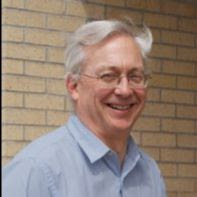I joined the Animal Science Department at the University of Missouri on June 1, 1980, and by the mid-1980s, I began wondering if I had missed God’s will for my life.
Even though I had prayed a lot about whether I should enter graduate school, I couldn’t see the eternal value in the work I was doing. I was spending a lot of time preparing lectures, writing grants, training graduate students, and writing papers.
I decided to attend a Christian Leadership Conference sponsored by Campus Crusade for Christ. Dr. Howard Hendricks of Dallas Theological Seminary was the featured speaker. He discussed the strategic impact a Christian faculty member can have on a secular campus.
After his presentation, I told Dr. Hendricks that I had a heart for missions but felt God had led me to graduate school. I wondered if I had missed God’s will for my life. Dr. Hendricks told me that, actually, I was a missionary. God had placed me in a mission field. He said that what I needed to do was figure out how to identify myself as a Christian and how to reach out to students and faculty.
After the conference, I began asking God for ideas on how to reach out to students in my course. I taught an undergraduate course on the physiology of reproduction in livestock species. God gave me the idea to offer an optional class period where I would discuss the application of reproductive technologies to humans(e.g., sex selection of children, in vitro fertilization, cloning, etc.).
The lecture would be optional. I decided to schedule the optional class/discussion period just before spring break, a class that many students would skip.
I told the students I would address four questions: 1) Is human life sacred, or are we just a continuation of other life forms? 2) If human life is sacred or has more value than other life forms, when does life (i.e., personhood) begin? 3) Is everything in life relative, or are there absolutes? and 4) Just because we can do something scientifically, does that make it right?
At the end of each of these lectures, I would identify myself as a Christian and tell them how I would answer the preceding questions. I did this for over 30 years, and I would typically have 60-80% of the class show up. The lecture/discussion led to individual conversations with students over the course of the semester.
I have found that students are interested in what faculty members think about the big questions in life. Regardless of the course subject, it is normally possible to think of a related subject in which a faculty member can present the Christian view.
Some faculty members will have concerns about pushback regarding the presentation of the Christian view in a classroom. In my experience, this is not an issue if it is clear the class period is optional. I began doing it as an untenured faculty member and did not have a problem.
I hope this is helpful!
Michael F. Smith
Professor Emeritus
Animal Science
University of Missouri

